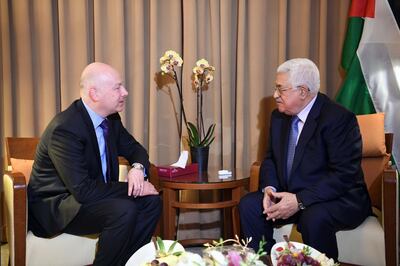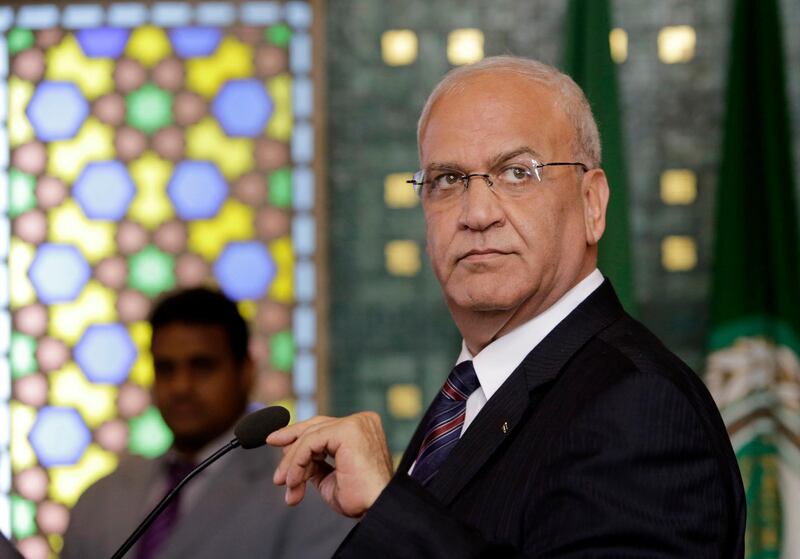The Trump administration is trying to divide the Palestinians in order to further the aims of Israel's hard-right government, senior Palestinian official Saeb Erekat writes exclusively for The National, in a searing response to US Middle East envoy Jason Greenblatt's claim that Palestinian leaders are stifling the promise of their people.
Mr Erekat, secretary general of the Palestine Liberation Organisation (PLO), rebutted Mr Greenblatt's assertion that Palestinian leaders are standing in the way of economic progress, an argument that made no mention of Israel's military occupation, opposition to a functioning and sovereign Palestinian state or its restrictions on the Palestinian labour market.
“For the Trump administration, the solution to ending Israel’s occupation is to buy the Palestinian right to national independence. Such a ‘solution’ is no more than a transaction,” he writes.
"In reality, once we realise our freedom and take control of our imports, exports and natural resources, among other essential attributes of a normal state, the economy would flourish and prosper in a free Palestine."
Mr Erekat, who has oft sparred with Mr Greenblatt since President Donald Trump was inaugurated, said his counterpart was trying to capitalise on economic desperation caused by Israeli policies in a bid to normalise the Israeli government’s plans, “legitimise its settlements and its whole system of oppression”.
Due to Israeli restrictions, up to 80 per cent of Palestinian GDP is to lost to the occupation, he says, citing World Bank figures that estimate that cost to be around $3.4 billion. Tourism has been monopolised by Israel or stifled in places such as Bethlehem where many travel to visit the believed site of Jesus Christ’s birth, he charges.
“This reflects costs we shoulder due to lack of access to natural resources, roads and international borders,” he writes.
______________
Read Saeb Erekat's comment in full:
Read Jason Greenblatt's comment in full:
______________
The Israeli military restricts Palestinian movement with a network of checkpoints, hindering movement for workers, rights groups say. There are also about 400,000 Israeli settlers in the West Bank who live in outposts that the Palestinians say are intended to prevent the contiguity of any future Palestinian state.
The war of words between Mr Erekat and Mr Greenblatt is yet another battle between officials in Washington and Ramallah as their relationship has become the most toxic since the creation of Israel in 1948.
Mr Trump and his key Middle East advisers – Mr Greenblatt, son-in-law Jared Kushner and US ambassador to Israel David Friedman – have, in the eyes of the Palestinians, set about destroying their cause for an independent and sovereign nation state.

The president relocated the US embassy from Tel Aviv to Jerusalem, effectively recognising the city as Israel’s capital and stoking Palestinian anger. The Palestinians seek East Jerusalem as the capital of any state, shared side-by-side with West Jerusalem as Israel’s capital.
Israel occupied that territory in the 1967 Arab-Israeli War. It hosts some of the holiest sites to Muslims, Jews and Christians, such as the Haram Al Sharif, or Noble Sanctuary, which is the third-holiest site in Islam.
Palestinians contend that Israeli authorities are trying to remove Palestinian claims to the territory, just this week demolishing shops that do not have Israeli permits and allowing right-wing Jews to move into an Arab neighbourhood.





